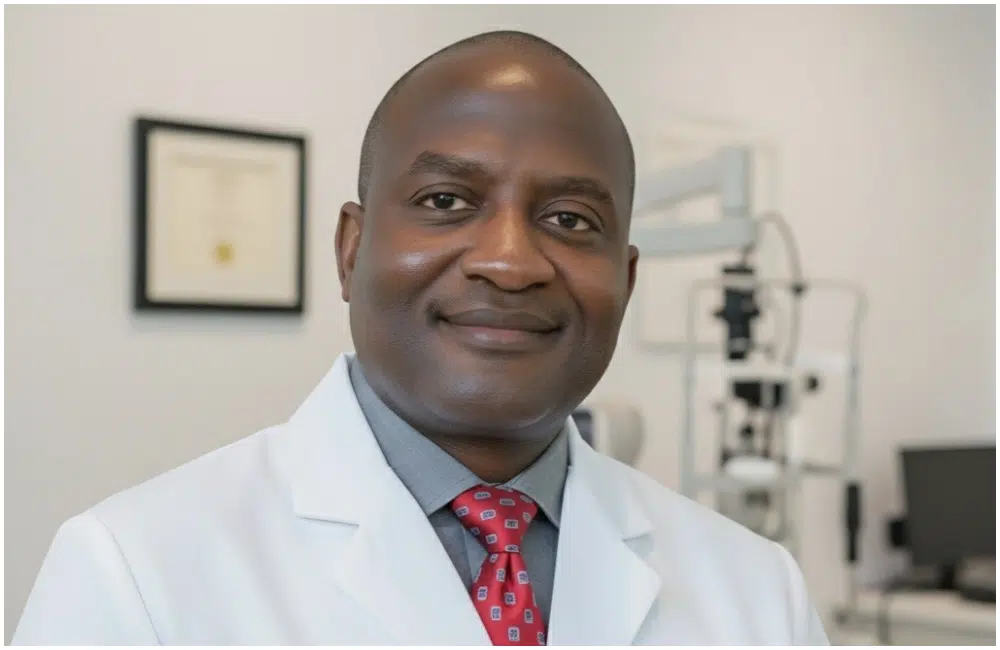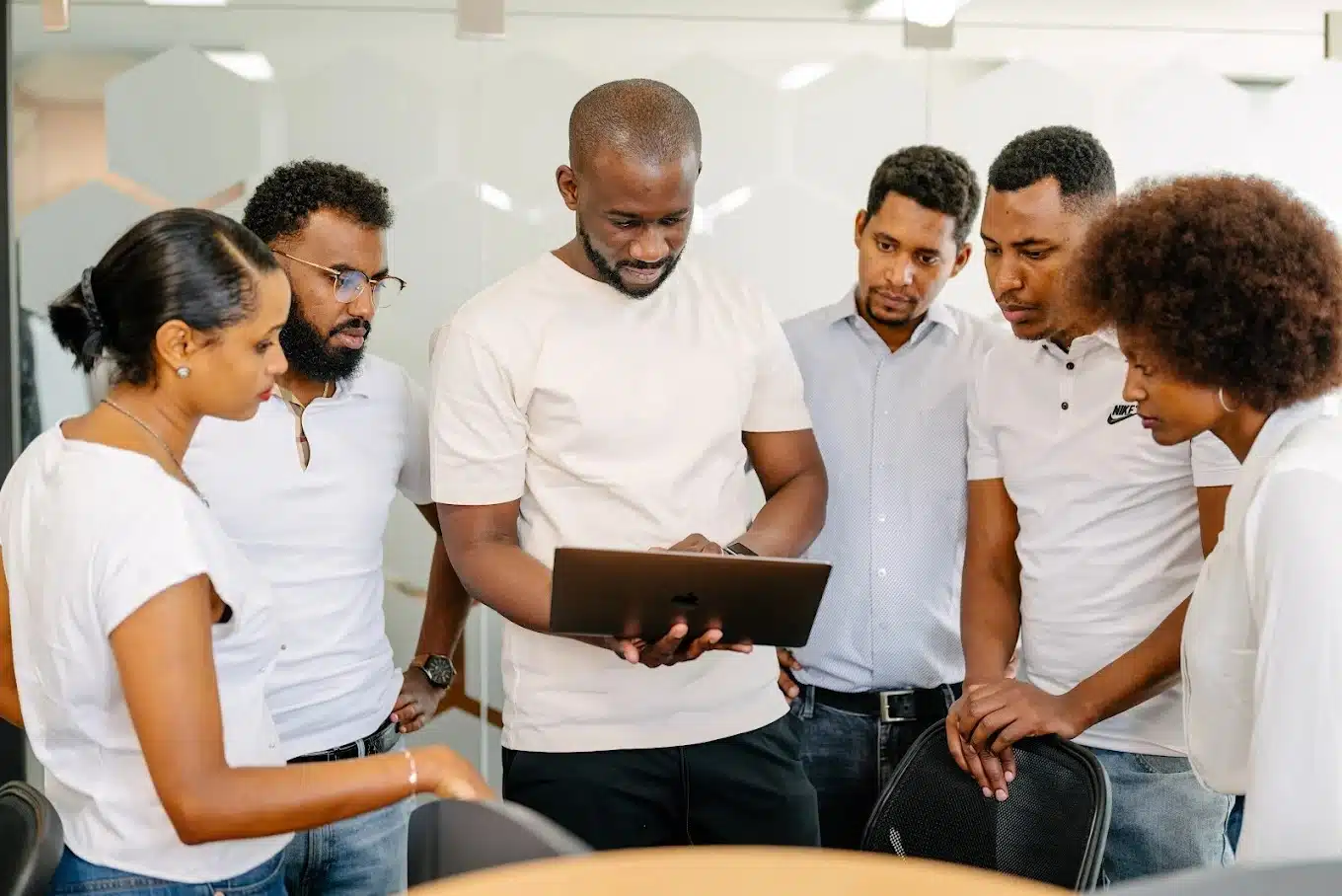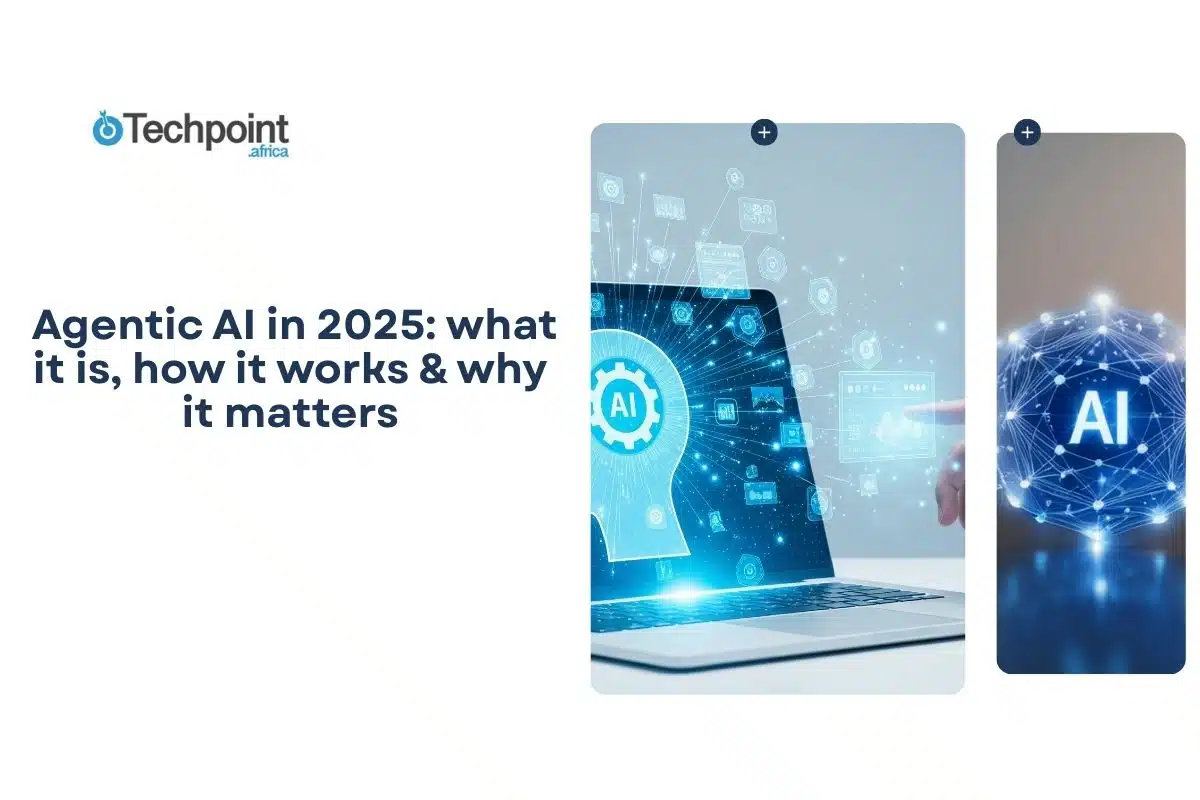When it comes to artificial intelligence innovation in the health-tech space, few people can rub shoulders with Nigerian-American physician Dr Stephen Odaibo. He spent his early years in Ilorin, southwest Nigeria, before going to the US to further his studies.
Odiabo earned a Bachelor of Science degree in Mathematics and a Master of Science in the same discipline via a fast-track four-year programme at the University of Alabama, Birmingham, while taking pre-med simultaneously.
He would then go on to complete another master’s degree program, this time in computer science at Duke University in 2009, before bagging his MD the following year at the Duke University School of Medicine, specialising in neurology and neurochemistry.
Odaibo’s background in mathematics, computer science, and medicine gives him an edge, which he has leveraged by founding Retina AI Health, a healthcare startup.
In this exclusive interview with Techpoint Africa, Odaibo shares deep insights into his journey and how young Africans can make headway in a difficult terrain.
How was growing up in Nigeria, compared to the US, where you furthered your studies?
It was wonderful. I had a great childhood growing up in Ilorin. I went to University Primary School and then I went to Federal Government College (FGC) Ilorin for secondary education; I left right after FGC when I was 17. I’ve been in the US for most of my life, but those early years were formative.
Where you grow up really has an imprint on your worldview and your identity. So I really identify with Nigeria; I love the country. The US has provided some excellent opportunities for me. I identify as a Nigerian-American.
Your first degree was in mathematics, then a master’s in computer science, and you ran a fast-track program in medicine, which is uncommon in Africa. Why did you make these choices?
Yes, it’s very different. One of the things I’ve really been blessed with is America’s liberal system. In Nigeria, you go straight to study medicine from secondary school, where you spend seven or eight years, and then you become a doctor. From age 17 or 18, you are committed to that track, which offers everything science and nothing else — no legal structure, math, computing, or anything that’s outside of the medical field.
When I got to the US, I was surprised. I thought my first degree would be in biology, which most people — probably over 80% of pre-meds — do. But I was told I could do anything for my first degree; I was free to study music, philosophy, history, anything as long as I took the prerequisite pre-med courses, which included chemistry and organic chemistry. And then you must take an exam called the MCAT.

Victoria Fakiya – Senior Writer
Techpoint Digest
Stop struggling to find your tech career path
Discover in-demand tech skills and build a standout portfolio in this FREE 5-day email course
So once I heard that, and you know, through divine providence and God’s goodness, I ended up in mathematics, and I got a scholarship in the math fast-track programme. So I got a master’s degree and a bachelor’s degree simultaneously; I finished my master’s degree when I was 21, and then I went to medical school.
That’s interesting. Do you think African universities should consider this system, especially the fast-track programme?
It is important for Africa to change the way things are done. We don’t have to copy because you can look at the Western countries and think that they are ahead; no, they are not. When we want to make progress, Africa may not need to look too much at templates. You can say what makes sense and then go for it. You might be surprised that it might put you ahead. It’s called leapfrogging.
So, what is Retina AI Health?
It’s quite a simple idea. We’re going after systemic diseases that you can screen for in the eye. You can find out if somebody is likely to die of a heart attack or if somebody is developing Alzheimer’s with a simple picture of their eye. You don’t need to do a blood test or anything like that.
The most obvious problem we’re going after is diabetic retinopathy because half a billion people in the world have diabetes. So we take a picture of the eye, and then we use the AI immediately in the cloud. The AI will tell you in three to four seconds whether this person has this disease or not in their eye.
There’s no doctor in that loop because there are not that many retina specialists. In the US, we don’t have fewer than 3,000 and in Nigeria, there’s definitely not enough. So that makes it important for us to use AI.
I have another company — Deep EigenMatics — that I’ve been filing patents for this year. It’s a little bit more abstract, but the idea there is using AI to discover drugs.
Tell us about it
It is important to use AI to create new drugs, whether they are protein molecules or small molecule drugs that you know stand a great chance at doing well in clinical trials and getting approval. This is because going through the pipeline — from discovery to approval — costs $2.6 billion, on average.
The time from start to finish is also another consideration. Typically, this ranges from 10 to 15 years, and this is for one drug. Imagine what happens after spending so much money over so many years, only for the whole thing to fall through.
This is where AI comes in; it helps you get the right drug early.
And so I had the opportunity again; God gave me the insights on this, and I started filing patents. Several have been filed already this year, and I’ve gotten two US patents on groundbreaking AI technologies for drug design and drug discovery approved in the past three weeks.
This gives us a higher chance of getting a drug that will be effective, that will not have side effects, and that we don’t have to cancel at some point in the process because $300 billion is being spent globally, per annum, on R&D, on pharmaceutical research. By the time you’re two and a half years in, one trillion dollars has already gone into R&D for pharmaceuticals. So that’s a crucial area where AI can make a big difference.
Where do you think Africa can come in?
There’s one area in which I think Africa can have an advantage. You can look at the educational system at the university and say, “What are people learning and why?” You can connect the dots, so that you can actually commercialise technologies and knowledge and bring about prosperity in a way that improves human life, that can solve real problems or real challenges that people have, not just for Africa, but for the world.
For a place to be prosperous, it means you’re solving people’s problems. And there are 8.2 billion people on the earth with all sorts of problems that can be solved.










